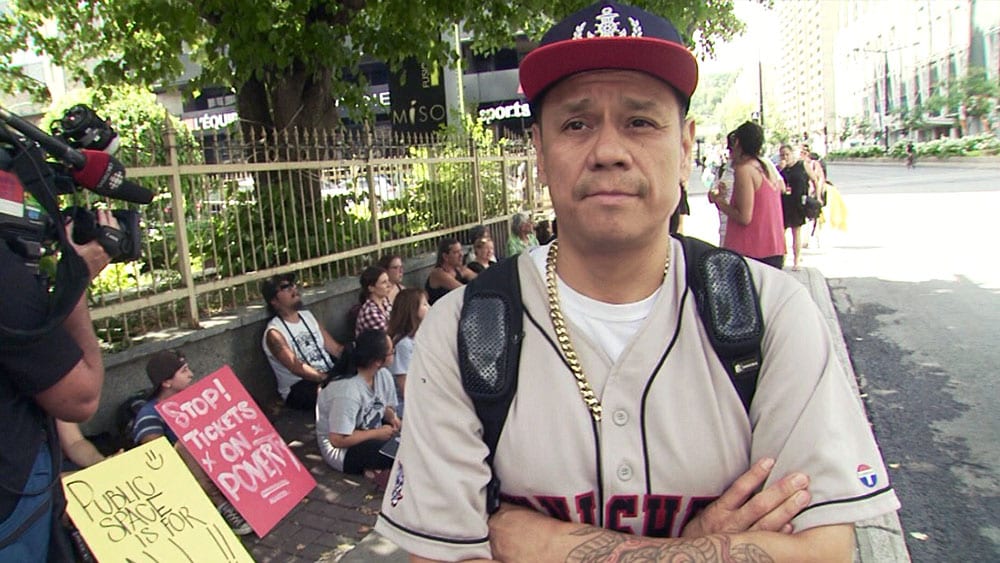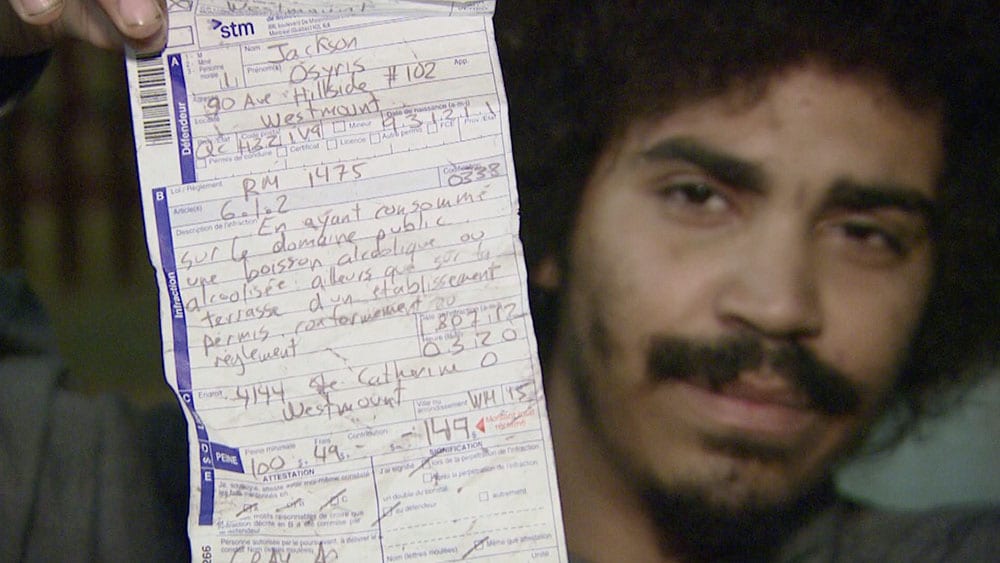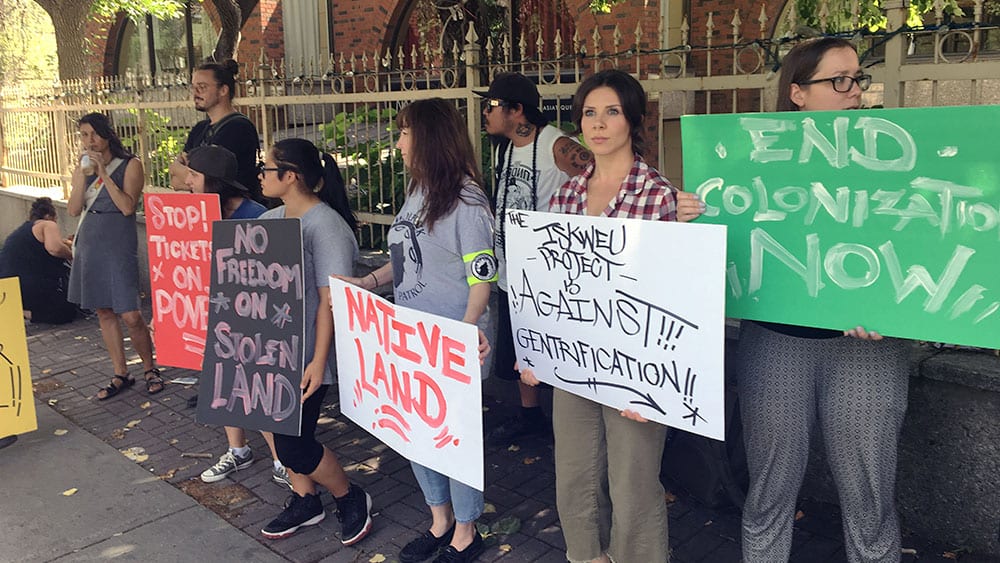About two dozen protesters took part in an act of civil disobedience Tuesday afternoon in downtown Montreal by sitting on a stretch of sidewalk where Indigenous homeless have been receiving tickets.
“The fact is that, where are these people to go?” asked Daybi, a Cree outreach worker who works with Montreal’s disproportionately large Indigenous homeless population.
“People want to just brush them away so that they’re out of sight and out of mind, but in reality that’s never gonna happen, this has always been an area where people have congregated.”
(Daybi, a Cree outreach worker who works with Montreal’s disproportionately large Indigenous homeless population. Photo: Tom Fennario/APTN)
Across the street from the protest sits Cabot Square, a place where the city’s homeless and vulnerable Indigenous population, particularly the Inuit, have been frequenting for decades.
Daybi helped organize this action after a rash of tickets were recently issued outside Restaurant Miso on the corner of Sainte Catherine and Atwater.
“We had complaints from more than one merchant, and also from some citizens,” said Community Officer Adalbert Pimentel of the Montreal Police. “Different complaints, consumption of alcohol, obstructing the sidewalk, also littering on a public domain.”
For 10 years Pimentel has patrolled this area.
He said in his experience, police officers use their discretion when handing out tickets, and that usually it’s the last resort.
According to a 2015 survey, 10 per cent of Montreal’s homeless population is Indigenous, even though they make up less than one per cent of the city’s total population.
“There is a lot of warnings, most of the time there is a lot of mediation done trying to find solutions but yes, it could end up in a municipal infraction,” said Pimentel.
(Osyris Jackson holds up one of his latest tickets. Photo: Tom Fennario/APTN)
But 24-year-old Osyris Jackson said that hasn’t been his experience.
“These cops never stop, I got a ticket one time for sleeping,” Jackson told APTN News at the Open Door shelter, located one block south of Cabot Square.
“I just get tickets. At least give me a warning and I will move, that’s not a problem.”
Jackson said he’s been living on the streets for about five years.
He showed APTN two tickets for drinking in public, each for $149.
“Max, in total I owe the government over a $1,000 in tickets,” he said.
$20,000 in tickets…
David Chapman is the director of the Open Door Shelter.
He estimated that about 40 per cent of the people who come here are Inuit.
Chapman said the shelters get many unpaid tickets because it’s used as a mailing address by the people who use it.
He brought out a box crammed with about 100 tickets which he said is from the last two and a half months.
“Having an open can of alcohol, smoking too close to a bus shelter, jaywalking, sleeping on a bench in the metro, relatively minor and arguably unnecessary infractions,” said Chapman, who added that one of his clients has over $20,000 in unpaid fines.
“What happens is, knowing that you have thousands of dollars to pay, and you don’t actually have the ability to repay it, it creates a psychological dysfunction that drives you back to the addiction of choice,” said Chapman.
Pimentel said that if merchants and citizens repeatedly call 911, it can’t just be ignored.
“When we have a complaint, we have an obligation to take action,” he said.
Meanwhile, people at the sit-in emphasized that the rapidly gentrifying area needs to accept the people who were here before them.
“There’s deeper social issues at hand, there’s more to the money behind the development of this area, maybe at that level, they could be more considerate of actual people,” said Daybi.
As for Jackson, before leaving the Open Door he inquired about borrowing some clothes for his upcoming court date.
“It’s bad man, how are we supposed to pay all this?” he adds, tickets in hand.












